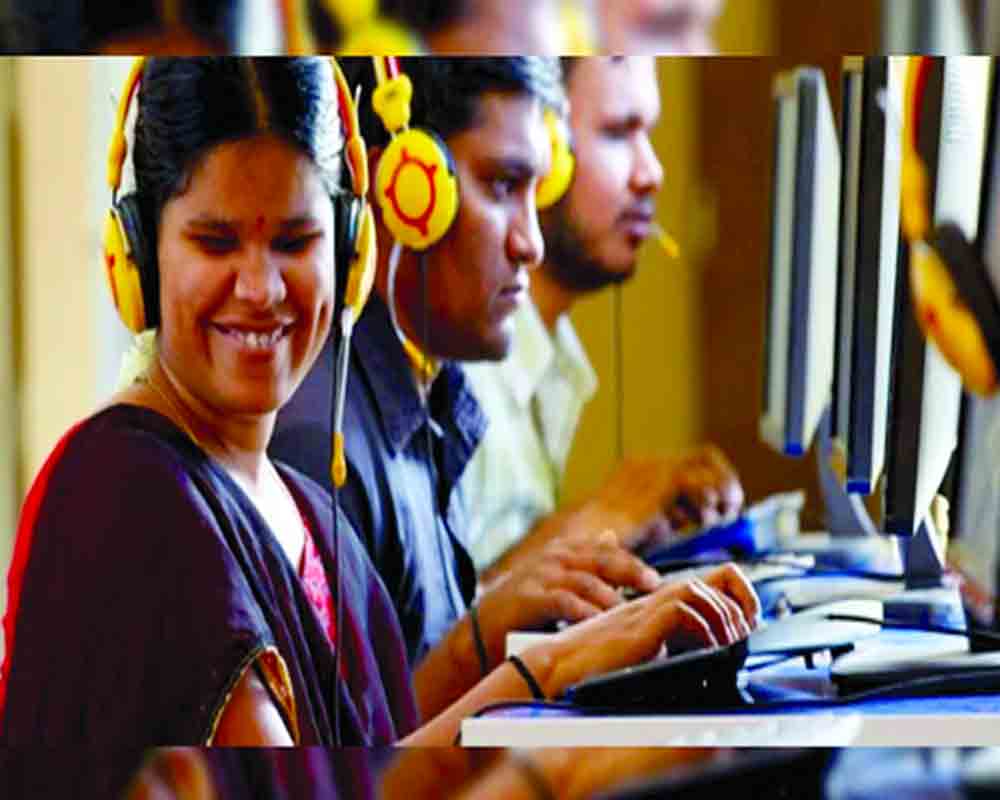The road to equality for disabled individuals in the workplace has been paved with both promise and pitfalls. Differently abled must be given their dignity to work
Inclusivity has long been hailed as a cornerstone of any progressive society. It is an assertion that we as a nation, time and again, aspire to uphold. However, as we take stock of the employment ecosystem in India, the lens through which we view inclusivity has often overlooked a significant portion of our population - persons with disabilities. The road to equality for disabled individuals in the workplace has been paved with both promise and pitfalls. As we delve into the present status of disabled people in India’s employment landscape, we uncover a complex tapestry of challenges, a world of untapped potential, and the beacon of hope represented by initiatives like the NCPEDP-LTIMindtree Helen Keller Awards.
Challenges and Opportunities
At the all-India level, 36% of the total disabled persons are workers. Among male disabled persons, 47% are working, while among female disabled individuals, only 23% are part of the workforce (DEPwD, MSJE). These figures underscore the disparity between genders in disability employment, emphasizing the urgent need for more inclusive policies. Rural India shows some promise, with 25% of female disabled individuals participating in the workforce, while in urban areas, the corresponding figure drops to 16%. This urban-rural disparity highlights the need for region-specific strategies to improve employment opportunities for disabled people. In the pursuit of employment, people with disabilities (PWDs) face significant challenges that hinder their entry into the corporate sector. This stark contrast between employable disabled individuals and those who are actually employed calls for immediate action to tap into this vast potential.
According to the latest workforce data reported by Nifty 50 constituent companies as part of their annual disclosures, the situation remains grim. Only five out of these 50 companies have more than 1% of people with disabilities on their rolls, with four of them being public sector companies. It’s worth noting that public sector companies are required to reserve 4% of all jobs for disabled people in compliance with the Rights of Persons with Disabilities Act, 2016 - a target which all the analysed companies fall short of. In a research paper titled ‘Moving Beyond Compliance: Inclusion of Persons With Disabilities in Business’ (2019) published by Oxfam India in collaboration with NCPEDP findings indicated that low literacy levels, lack of access to skills and technology, ignorance, Misinformation, and prejudice, access to information on job opportunities and Inadvertent exclusion are significant challenges faced by persons with disabilities in seeking employment.
Moreover, the study highlighted various hurdles faced by disabled individuals in their employment. These challenges encompass issues like ineffective integration processes, limited career growth, skill-related job losses, inadequate grievance mechanisms, poor job identification, unsuitable work assignments, lack of workplace accessibility, insufficient budget allocation for disability-related technology, and a tendency to limit inclusion efforts to CSR. Persistent barriers include negative attitudes, social integration challenges, feelings of indebtedness, and ongoing transportation issues.
Addressing these challenges requires a fundamental shift in perspective and practice within the govt/corporate world. It necessitates the recognition that disabled individuals bring valuable skills, unique perspectives, and a strong work ethic to the table. Overcoming the hurdle of attitude demands a commitment to changing workplace cultures, fostering empathy, and championing diversity and inclusion.
One effective means of achieving this transformation is through the practice of reasonable accommodation. Reasonable accommodation involves making necessary adjustments to the workplace environment and job duties to enable disabled employees to perform their tasks effectively. This can encompass a range of measures, from providing assistive technologies to accommodating flexible work hours.
To address the present challenges, India needs a multifaceted approach. Public and private sector organizations must undertake awareness campaigns and sensitization programs to combat stereotypes and biases against disabled individuals. Changing perceptions is only the first step towards fostering a more inclusive work environment.
The private sector should actively implement the provisions of the Rights of Persons with Disabilities Act 2016 and provide reasonable accommodations to disabled employees. Mandatory reporting on the hiring and inclusion of disabled individuals can ensure accountability. Private sector companies must not only meet legal compliance but also set aspirational goals for disability inclusion, aiming to go beyond the minimum requirements.
As India establishes itself as a thriving centre for startups and entrepreneurship, it is essential to shine a spotlight on self-employment opportunities for individuals with disabilities. This necessitates substantial investment. Customized training schemes and initiatives aimed at enhancing skills can provide disabled individuals with the tools necessary for success in the job market. The significant pool of employable disabled individuals should be tapped into through specific efforts, vocational training, and programs designed for skill enhancement.
Empowering individuals with disabilities to choose between remote and in-office work recognizes their diverse capabilities and needs. Rather than assuming remote work as the sole solution, it's important to provide choices and decision-making power. To achieve this, organizations should adopt accessible communication tools and provide comprehensive training to all employees. This approach promotes inclusivity and respects individual preferences, allowing disabled individuals to thrive in a workspace that aligns with their unique needs and talents.
The present status of people with disabilities in India’s employment ecosystem is a mixed bag of challenges and opportunities. We have a long way to go to create a truly inclusive workforce, but the path is illuminated by promising initiatives and the potential of disabled individuals to contribute meaningfully to society and the economy. By embracing reasonable accommodation and promoting an inclusive culture, organizations can unlock the untapped potential of persons with disabilities and build a more inclusive India.
(The writer is executive director, National Centre for Promotion of Employment for Disabled People, views are personal)


























